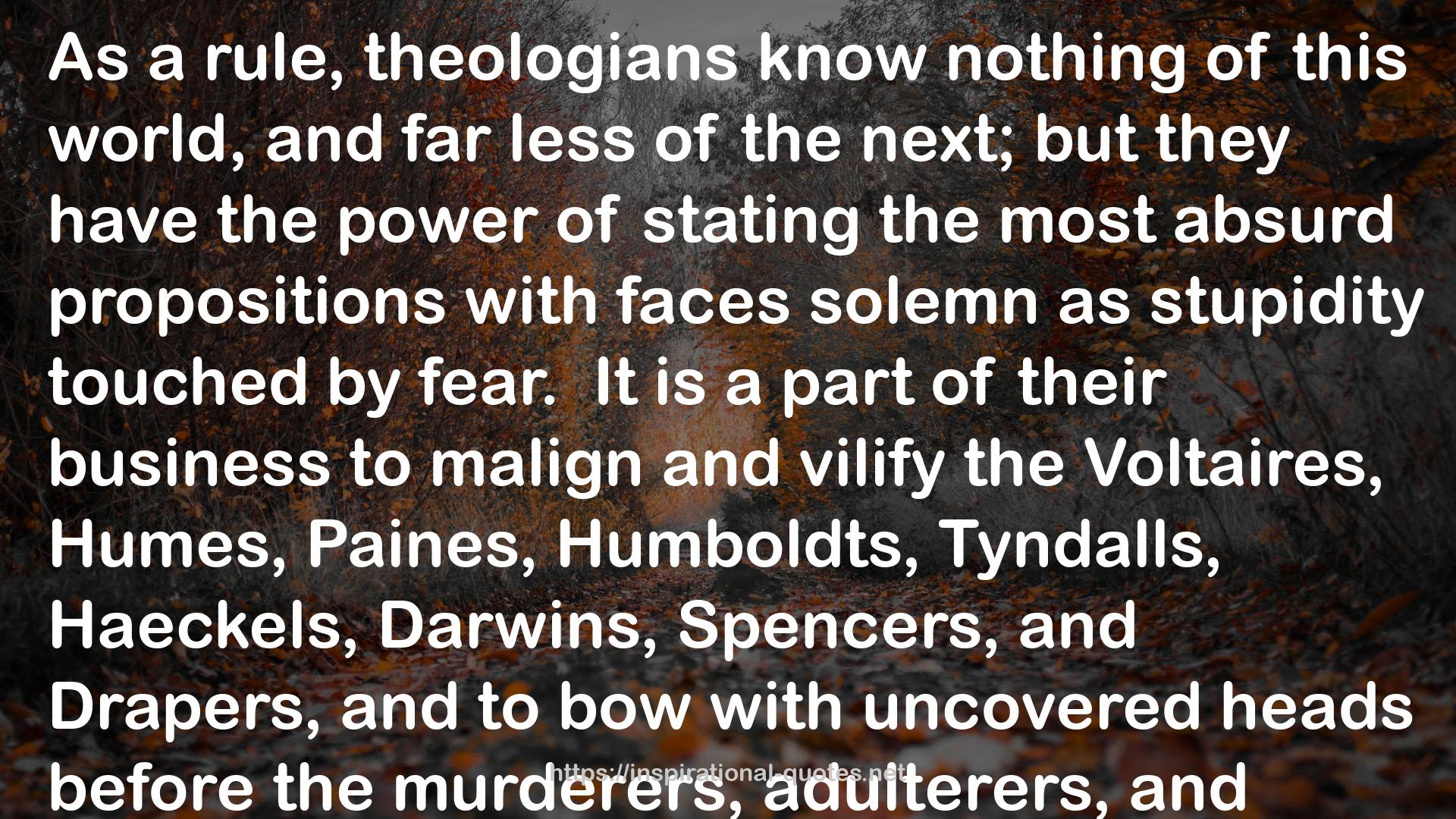Robert G. Ingersoll QUOTES
141
" As a rule, theologians know nothing of this world, and far less of the next; but they have the power of stating the most absurd propositions with faces solemn as stupidity touched by fear.
It is a part of their business to malign and vilify the Voltaires, Humes, Paines, Humboldts, Tyndalls, Haeckels, Darwins, Spencers, and Drapers, and to bow with uncovered heads before the murderers, adulterers, and persecutors of the world. They are, for the most part, engaged in poisoning the minds of the young, prejudicing children against science, teaching the astronomy and geology of the bible, and inducing all to desert the sublime standard of reason. "
150
" A little while ago, I stood by the grave of the old Napoleon—a magnificent tomb of gilt and gold, fit almost for a dead deity—and gazed upon the sarcophagus of rare and nameless marble, where rest at last the ashes of that restless man. I leaned over the balustrade and thought about the career of the greatest soldier of the modern world.
I saw him walking upon the banks of the Seine, contemplating suicide. I saw him at Toulon—I saw him putting down the mob in the streets of Paris—I saw him at the head of the army of Italy—I saw him crossing the bridge of Lodi with the tri-color in his hand—I saw him in Egypt in the shadows of the pyramids—I saw him conquer the Alps and mingle the eagles of France with the eagles of the crags. I saw him at Marengo—at Ulm and Austerlitz. I saw him in Russia, where the infantry of the snow and the cavalry of the wild blast scattered his legions like winter's withered leaves. I saw him at Leipsic in defeat and disaster—driven by a million bayonets back upon Paris—clutched like a wild beast—banished to Elba. I saw him escape and retake an empire by the force of his genius. I saw him upon the frightful field of Waterloo, where Chance and Fate combined to wreck the fortunes of their former king. And I saw him at St. Helena, with his hands crossed behind him, gazing out upon the sad and solemn sea.
I thought of the orphans and widows he had made—of the tears that had been shed for his glory, and of the only woman who ever loved him, pushed from his heart by the cold hand of ambition. And I said I would rather have been a French peasant and worn wooden shoes. I would rather have lived in a hut with a vine growing over the door, and the grapes growing purple in the kisses of the autumn sun. I would rather have been that poor peasant with my loving wife by my side, knitting as the day died out of the sky—with my children upon my knees and their arms about me—I would rather have been that man and gone down to the tongueless silence of the dreamless dust, than to have been that imperial impersonation of force and murder, known as 'Napoleon the Great. "

